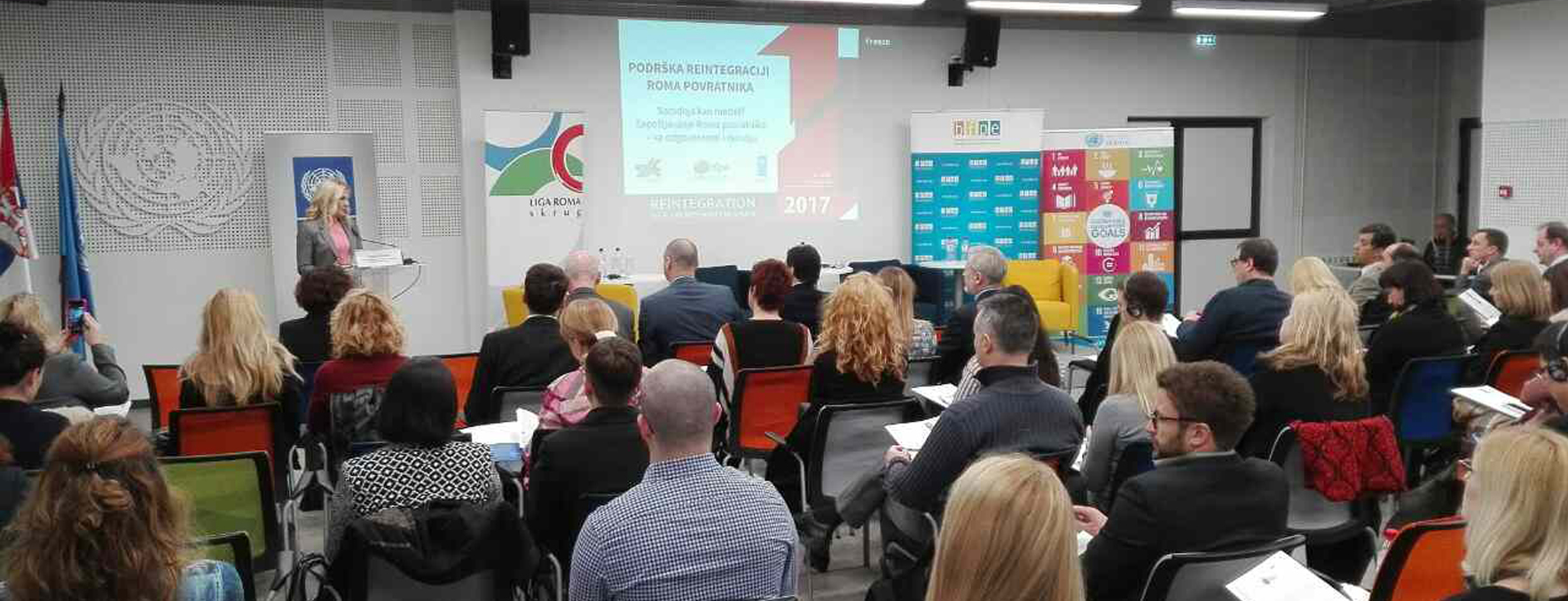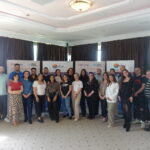Co-operation as a model? Employment of Roma returnees – to responsibility and development
The conference “Cooperation as a model? Employment of Roma returnees – responsibility and development” was held on Tuesday, March 7, at United Nations Headquarters in Belgrade.
The conference presented the current results of the pilot project supporting the reintegration of Roma returnees in Subotica and Nis from mid-2016, carried out by the United Nations Development Programme (UNDP), the Belgrade Fund for Political Excellence (BFPE) and the Standing Conference of Roma Associations of Citizens – the League of Roma (SKRUG).Representatives of international and non-governmental organizations, private companies, embassies and the National Council of the Roma had the opportunity to be informed about the results so far of the project, but also to engage in meaningful and combined structural discussion on ways to achieve sustainable reintegration of Roma and other returnees, but also the potential for the spread of good practice from UNDP-BFPE-SKRUG project.
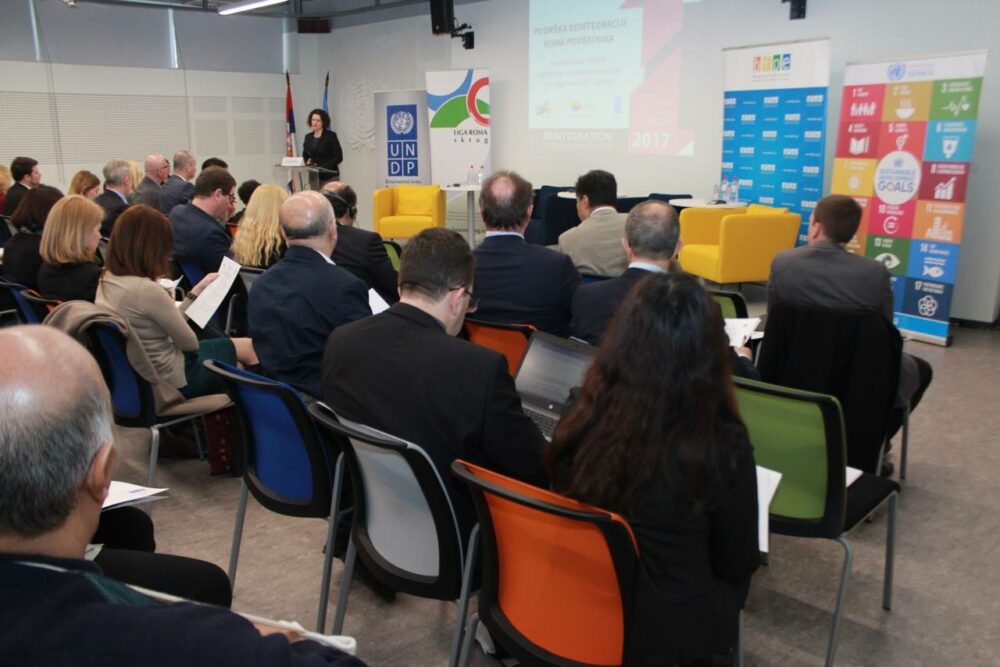
Steliana Nedera, Deputy Resident Representative of the UN in Serbia, pointed out that the intention of UNDP, together with its partners is to promote successful and sustainable reintegration of Roma returnees through innovative model of cooperation. This is an example of partnership with various levels of government, local governments and communities, as well as with civil society organizations and international organizations, and perhaps most importantly, a partnership with the private sector.
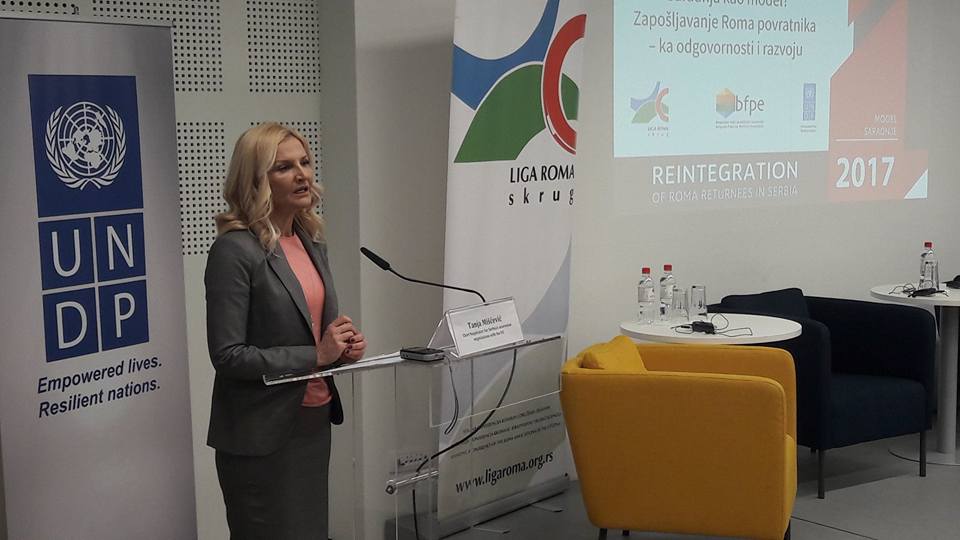
Tanja Miscevic, head of Serbia’s negotiating team, explained how returnees and their reintegration are a matter of great importance to the negotiation process, hoping negotiations will contribute to resolving this issue in several ways – through the Action Plan on the basis of the Strategy for Roma Inclusion, with the Roma Inclusion seminar to be held in mid-2017, placing the issue of Roma inclusion in the broader context of negotiations under chapters 23 and 24, as well as raising awareness about improving the position of Roma in our society.
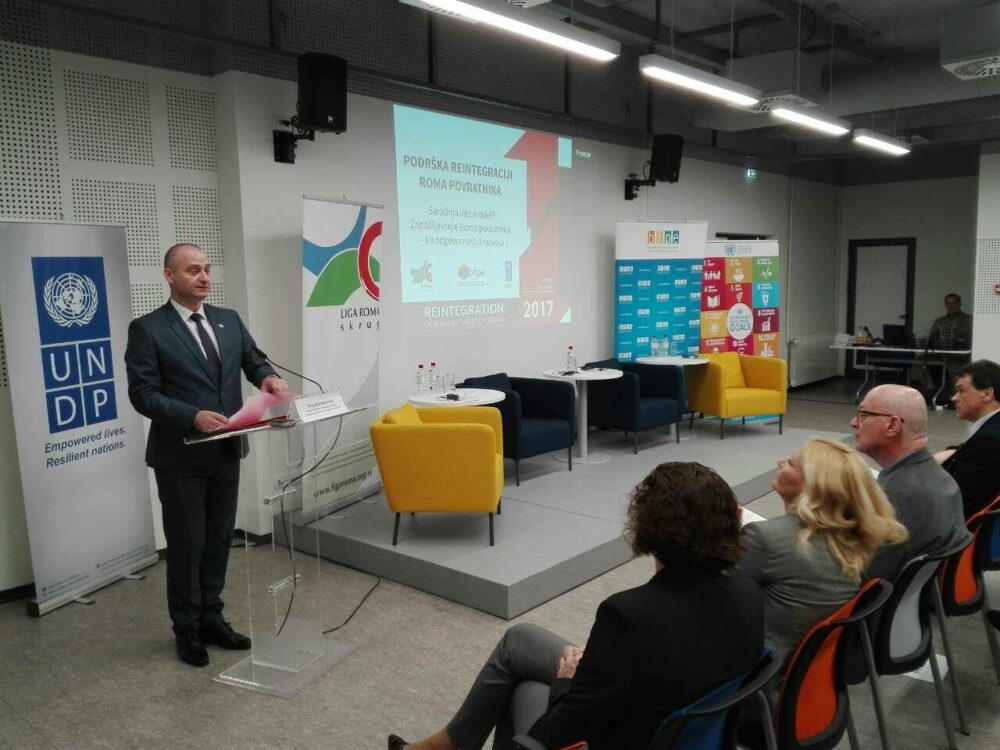
Nenad Ivanisevic, Minister of State in the Ministry of Labor, Employment, Veteran and Social Affairs pointed out that during last week, the Government adopted a decision on establishment of the Coordination Body for the implementation of the Strategy for Roma Inclusion. He stressed the importance of education for Roma, as well as the link between adequate education and access to labor market.
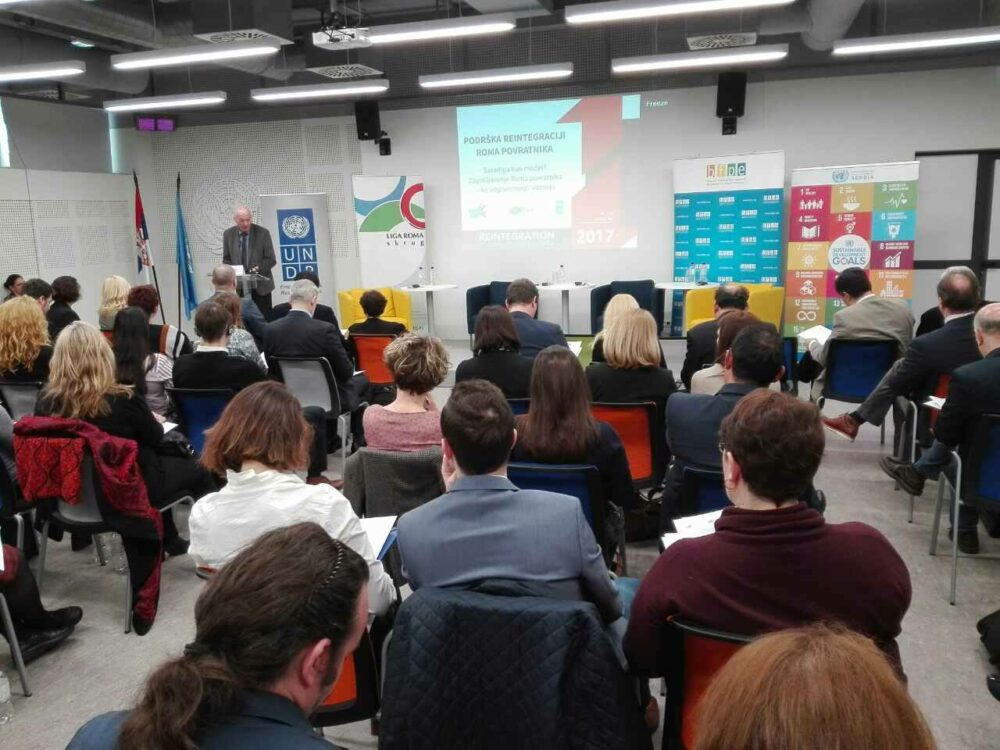
Miroslav Miletic, Vice President of the Serbian Chamber of Commerce followed noting how on the list of the National Employment Service there are 26,000 Roma; while many, if not most do not use their right to report and ask for assistance. In addition, Roma women are at a considerable disadvantage.
There is no enabling environment for the development of Roma entrepreneurship, said Miroslav Miletic.
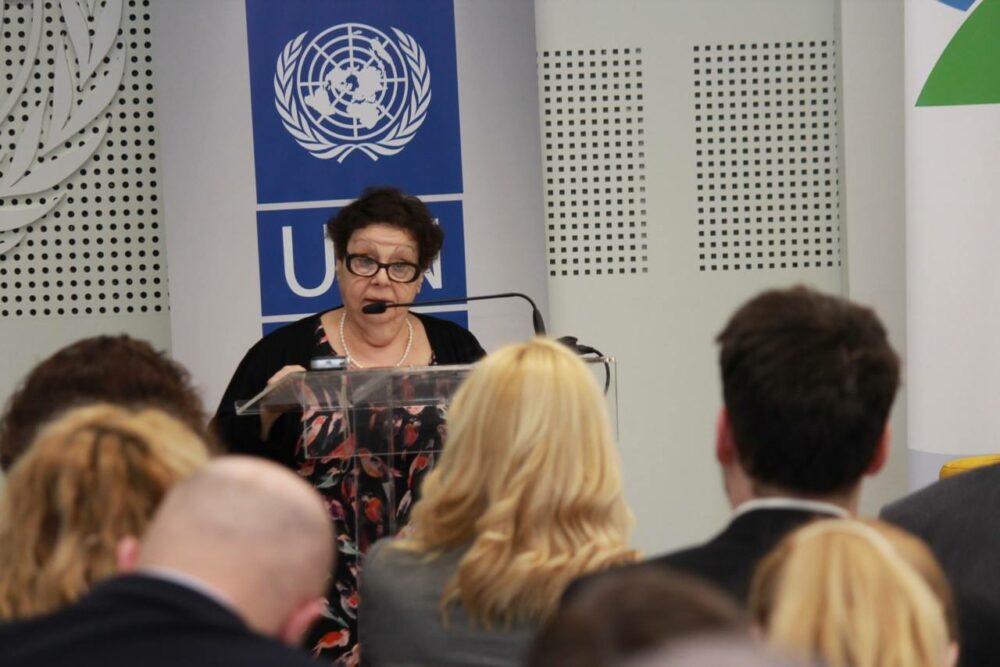
Sonja Licht, President of the Belgrade Fund for Political Excellence pointed out that despite the current popularity of the term inclusion, it is necessary to talk about the true integration of all citizens of the Republic of Serbia. She noted that to convince others that Roma are equal may be only possible if they are given the opportunity to participate in the most important social processes.
The model that we hear today should become a way of life, concluded Licht.


